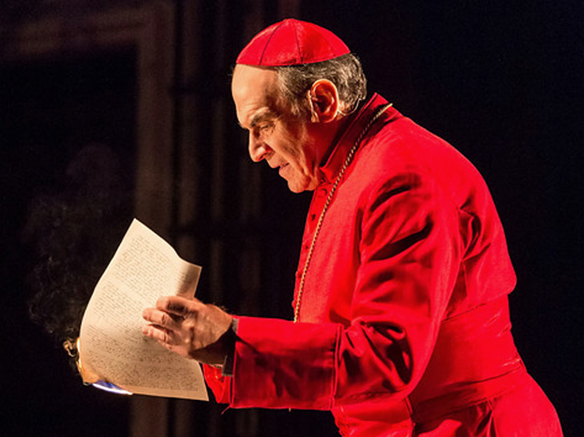Things started to change in the Catholic Church when Pope John XXIII, now a saint, convened the second Vatican Council. Unfortunately, he died in 1963, before all of his ideas for church reform were put into place.
He was succeeded by Paul VI, who was more ambivalent to change than his predecessor. His reluctance to totally implement all of John XXIII’s ideas was encouraged by the Curia, the administrative body in the church, who were intent on restoring the autocratic policies that existed prior to the second Vatican Council.
Things started to change in the Catholic Church when Pope John XXIII, now a saint, convened the second Vatican Council. Unfortunately, he died in 1963, before all of his ideas for church reform were put into place.
He was succeeded by Paul VI, who was more ambivalent to change than his predecessor. His reluctance to totally implement all of John XXIII’s ideas was encouraged by the Curia, the administrative body in the church, who were intent on restoring the autocratic policies that existed prior to the second Vatican Council.
After Paul VI’s death, Cardinal Albino Luciani reluctantly became the next pontiff and his plans for the church turned out to be far more disturbing to the Curia than those of John XXIII. Thirty-three days after his simple coronation Luciani, now John Paul I, died. Was he murdered? And if so, who did it?
This is the premise of American lawyer/playwright Roger Crane in his first play, “The Last Confession.” According to Crane, the Venetian cardinal who chose the name Pope John Paul I “turned out to be far more liberal than the reactionaries ever suspected. The night before he died, he had decided to remove the most senior of the reactionaries from power, as well as (American) Bishop Marcinkus, who headed the scandal ridden Vatican Bank. Because he died the next day, his reforms were never implemented.”
Crane’s play about power in the Vatican is an intriguing thriller with religious overtones as Cardinal Giovanni Benelli makes his last confession. David Suchet (Royal Shakespeare Company, perhaps best known for his portrayal of Agatha Christie’s Hercule Poirot in all 74 TV episodes) is excellent as Benelli who is certain Pope John Paul I did not die of natural causes.
To recount everything that led up to the shocking demise of the sweet natured man who reigned for only 33 days, the playwright uses Benelli’s final confession as a device to lay out the plot. According to Crane, “ that confession recounts the events that occurred before, during and immediately after the Pope’s 33-day reign and Benelli’s ambition to become Pope himself.”
The confession itself is a poetic devise used to frame the evidence presented, but the events detailed in the confession are based on actual fact.
Canadian actor Philip Craig is the confessor and Richard O’Callaghan, United Kingdom, plays the gentle Luciani who is more parish priest at heart than Pope. O’Callaghan infuses his performance with infectious warmth, humanity and compassion. This new Pope cast a long shadow on the future of the papacy and his sweetness and lack of pomp and circumstance remind one of the current Pope, Francis I.
What is also interesting about the play is the chance to go behind closed doors as the cardinals vote on the next cardinal to become pope. Lots of politicking goes on before the black smoke turns to white—heralding the next vicar of Christ.
The sets, designed by William Dudley have movable wrought iron pieces that reconfigure, giving a sense of openness at time or prison walls that confine and constrict.
“The Last Confession,” runs through July 9 at the Ahmanson Theatre at the Music Center in downtown Los Angeles.
**
New DVD Releases–”The Lunchbox,” a debut feature from writer/director Ritesh Batra, was an official selection of the Cannes, Toronto, Telluride and Sundance Film Festivals. In this sweet story a mistaken delivery in Mumbai’s famously efficient lunchbox delivery system connects Ha, a neglected housewife to Saajan, a lonely man on the verge of retirement. Through a series of exchanged notes that they pass back and forth through the lunches they find comfort in their unexpected friendship. Sony Pictures, rated PG.
For youngsters, check out DreamWorks “Dragons: Defenders of Berk Part2 and “Ernest & Celestine,“ an Academy Award nominee about an artistic little mouse named Celestine who befriends a grumpy bear named Ernest. Rated PG.


















